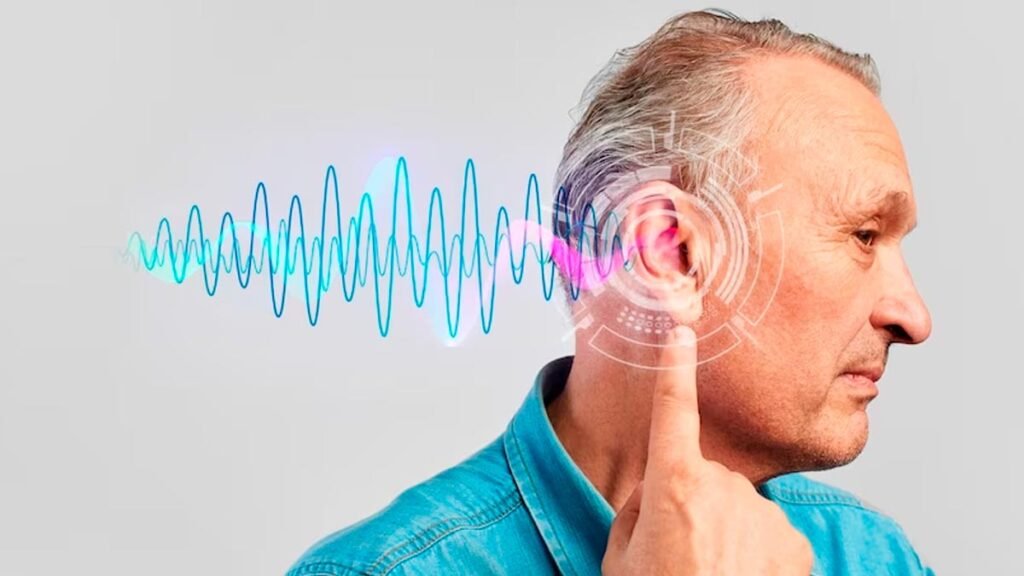Tinnitus, commonly described as a persistent ringing, buzzing, or hissing sound in the ears, affects millions of people worldwide. While many believe tinnitus originates solely from the ears, research suggests a strong connection between tinnitus and brain function. Understanding this link can help individuals manage symptoms more effectively and explore potential treatment options.
How Tinnitus Affects the Brain
Tinnitus is not just an ear condition; it involves abnormal neural activity in the brain. When the auditory system is damaged due to noise exposure, aging, or other factors, the brain compensates for the loss of sound input by increasing neural firing. This hyperactivity in the auditory cortex is believed to be a key contributor to the perception of phantom sounds.
Neural Mechanisms Behind Tinnitus
- Auditory Cortex Hyperactivity: Studies using functional MRI scans show increased activity in the auditory cortex of individuals with tinnitus. This suggests that the brain is overcompensating for lost auditory signals.
- Limbic System Involvement: The limbic system, which regulates emotions and stress responses, is also affected. This explains why tinnitus can cause anxiety, depression, and sleep disturbances.
- Neuroplasticity and Maladaptive Changes: The brain’s ability to reorganize itself (neuroplasticity) plays a role in tinnitus. When auditory pathways are disrupted, the brain rewires itself, sometimes leading to persistent tinnitus symptoms.
Tinnitus and Cognitive Function
Emerging research suggests a link between tinnitus and cognitive decline. Individuals with chronic tinnitus often report difficulties with concentration, memory, and attention. This may be due to the brain’s constant processing of the phantom sound, which diverts cognitive resources away from other tasks.
Cognitive Impacts of Tinnitus:
- Reduced Attention Span: The constant ringing can interfere with focus and productivity.
- Memory Challenges: Tinnitus sufferers may struggle with short-term memory retention.
- Mental Fatigue: The brain’s effort to suppress tinnitus can lead to cognitive exhaustion over time.
Managing Tinnitus Through Brain Training
Since tinnitus is closely linked to brain function, several cognitive and behavioral therapies aim to retrain the brain and reduce symptom severity.
Effective Brain-Based Strategies:
- Cognitive Behavioral Therapy (CBT): Helps individuals change their emotional response to tinnitus, reducing distress and improving coping mechanisms.
- Mindfulness and Meditation: Enhances focus and reduces stress, making tinnitus less intrusive.
- Sound Therapy: Background sounds, white noise machines, or nature sounds can help mask tinnitus and retrain the auditory system.
- Neurofeedback Therapy: Uses real-time brainwave monitoring to teach individuals how to regulate neural activity associated with tinnitus.
The Future of Tinnitus Research
Advancements in neuroscience are shedding light on potential treatments for tinnitus. Researchers are exploring:
- Brain Stimulation Techniques: Transcranial magnetic stimulation (TMS) and transcranial direct current stimulation (tDCS) show promise in modulating auditory cortex activity.
- Pharmacological Solutions: Investigating drugs that target neurotransmitters involved in tinnitus perception.
- Artificial Intelligence (AI) in Tinnitus Management: AI-driven sound therapies may provide personalized treatment plans.
Conclusion
Tinnitus is not merely an ear disorder—it is a complex condition involving the brain’s auditory and emotional processing centers. By understanding the neural mechanisms behind tinnitus, individuals can explore effective management strategies and stay informed about emerging treatments. If you experience persistent tinnitus, consulting a healthcare professional can help determine the best course of action to improve your quality of life.
References
- Eggermont, J. J., & Roberts, L. E. (2015). The neuroscience of tinnitus. Trends in Neurosciences, 38(12), 733-744.
- Vanneste, S., & De Ridder, D. (2012). The neural network of phantom sound changes over time: A comparison between recent onset and chronic tinnitus patients. European Journal of Neuroscience, 36(5), 2438-2448.
- Schaette, R., & Kempter, R. (2012). Computational models of tinnitus development: Hyperactivity and neural gain. Progress in Brain Research, 191, 195-212.

